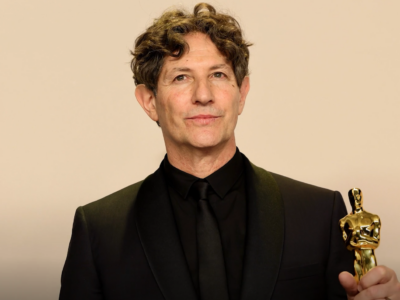
Juan de Dalmau, president of International Space University. Photo reproduced with permission.
This is the second of two parts in the Global Voices interview with Juan de Dalmau, president of International Space University (ISU). The first part of the article is here.
The International Space University (ISU) is a private university founded in 1987 to train future leaders in the exploration and development of space. Global Voices spoke with university president Juan de Dalmau on his efforts to continue his institution's traditions of interdisciplinary and peaceful development.
GV: How did you achieve women's enrollment at 40 percent when meanwhile so many industrialized nations struggle to even convince young women to pursue scientific studies?
JdD: This improvement is recent for us as well, but it is the result of many years of efforts and partnerships. One of those is a multi-year agreement with the European Space Agency, which has just been renewed for three years. It allocates funds to give scholarships to the best ESA candidates, in an effort to increase the number of women.
As for my part, it is about years of communication and education at ESA. What is missing are role models for girls to emulate. So we are working with the Irish dollmaker Lottie to develop a collection of “professional” dolls. … [Now] there is Astronomer Lottie, the marketing of this new doll was done by Lottie in collaboration with ESA.
Also, three students in this year's class have decided to conduct a research project on gender parity in the ISU. Which includes all the students, faculty, and external stakeholders. This student group is drafting recommendations to improve gender parity, especially at the external stakeholder level, and I look forward to seeing their findings.
GV: Your mission was founded on the premise of peaceful technological development. How do you navigate current geopolitical tensions?
JdD: When I have to deal with a difficult political subject, I refer again to the credo of ISU founders : “ISU is a place where students and faculty from all backgrounds are welcomed; where diversity of culture, philosophy, lifestyle, training and opinion are honored and nurtured”. And you will note that the words “space” or “technology” were not mentioned therein. That is our philosophy.
We have partners in the United States, China, South Africa, Japan … Sometimes, like in the summer school program in Shenzhen, China, this is a problem for some stakeholders. In fact, unless there are policy changes made in the United States, NASA employees cannot travel to China.
I learned a lesson in 1989 when I was studying at ISU: One has to respect the geopolitical facts, but not concede to them. Do not believe that something is impossible when actually, with a little imagination, it is possible.
Our group had imagined a project to build an orbital space station, which would be the research base for the study of physical and biological effects of weightlessness. To prepare for future missions on the Moon and Mars, where the force of gravity is six times and three times lower, respectively, than gravitation on Earth. We had imagined an international station launched from each country, the USA, the USSR, et cetera, and assembled in orbit. Our professor told us that our idea was “very beautiful, but politics always wins”. And then, just a few years later, U.S. President [Bill] Clinton invited the Russians to participate in the International Space Station …
GV: The conquest of space is no longer a purely institutional playing field, with the entry into the scene by private companies, like SpaceX and many others: What is the position of the ISU with respect to the private development of aerospace ventures?
JdD: We are trying to show an evolution in the perception of space. We make a comparison with the way humanity has used the oceans. Similar to oceans, space is a place, not a prerogative of governments, nor of the private sector. If we act responsibly, we can accomplish a lot in space: to do research, and to harness resources that are almost limitless. And, if possible, in a sustainable way (the surface of the Earth receives enough solar energy in two minutes to cover global energy consumption for one year!). But space can also provide an external platform for Earth observation, and can become a destination for space tourism, which will one day be affordable.
We hope that space will not become a space of confrontation. Military defense is not an area covered by the ISU program, although we do invite speakers on the subject.
We are now proposing two-week course modules entitled “New Space”. We are seeing a lot of new businesses that want to do ventures in space, and those are often run by ISU alumni.
GV: Is ISU working to make optimistic science fiction a reality? What is your vision of the future — a permanent colony on the Moon, human exploration of Mars, better use of terrestrial resources …?
JdD: I really like that term, “optimistic science fiction”, that's really what it is. Space is about dreaming. When you ask an audience “who here knows someone who was fascinated by space when he or she was a child”, 90 percent of the audience raise their hand. Space makes children dream, but so, too, for all of humanity.
In the future? There are people who dream of living permanently on the Moon or on Mars. What is interesting is that, most of the time, their plan intends to reproduce what exists on Earth …
We must maintain the dream! Companies such SpaceX or Blue Origin want to support not just a dozen, but up to a million people, on the Moon. To do this, we will need to inject funds, to build modules, et cetera. These companies are hiring continuously.
Space can also help us to preserve what we have on Earth, and to make the most of it. The two aspects come together: space can help us take care of the Earth. The United Nations started an initiative a few years ago, which aims to see how space can help achieve its 17 sustainable development goals. In education, health, nutrition, disaster prevention, et cetera. To inhabit the Moon in order to preserve the Earth, is a concept that did not exist 10-15 years ago.






